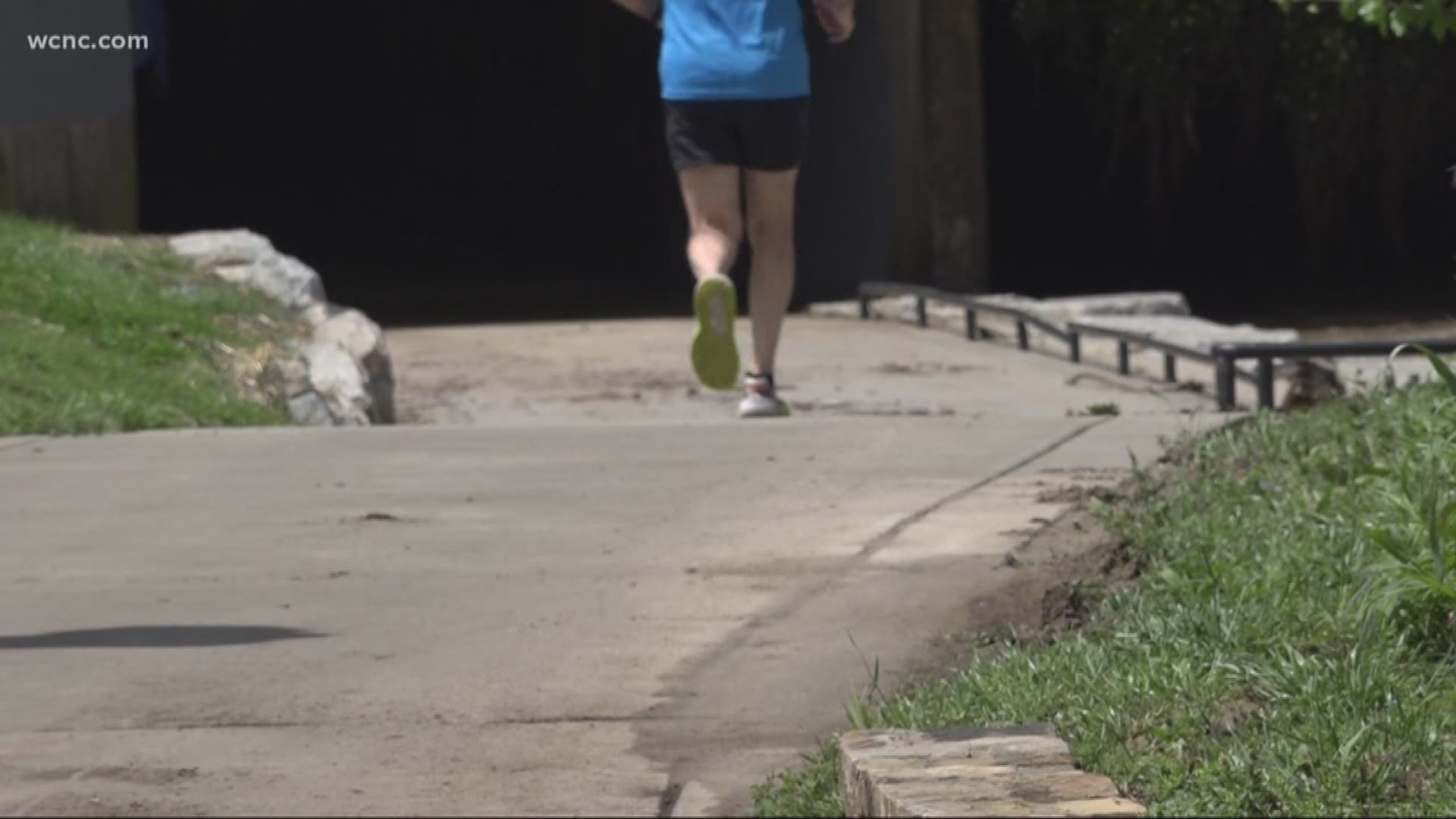CHARLOTTE, N.C. -- Greenway advocates in Charlotte are pushing for more miles of connected greenways in the Queen City to bring more dollars to local businesses.
Rick Winiker, a Greenways for Mecklenburg board member, said there has been a master plan in the works for years to create more trails, but it isn’t happening very quickly.
“The problem is it hasn’t been a priority for funding in the county for over a decade,” Winiker said. “And we think it’s time for that to become a priority.”
Greenways for Mecklenburg would like to see a 200-mile greenway system become a reality throughout the county by 2035. Currently, there are only 47 miles of greenway trails in Mecklenburg County, and many are not connected.
David Hale, president of the Plaza Midwood Neighborhood Association, said the county and businesses are losing out on valuable dollars.
According to a newly released North Carolina Department of Transportation (NCDOT) study, every dollar of initial trail construction brings a return of $1.72 annually from sales revenue, sales tax revenue, and benefits related to health and transportation.
“Certainly in our area where we’re seeing such tremendous growth,” Hale said, “connecting these neighborhoods should be a common goal for everyone, and it should be a no-brainer.”
Hale said Charlotte trails cities of similar size in terms of connected greenway space, using Raleigh as an example with 100 miles of greenways. In Atlanta, the BeltLine system includes 33 miles of connected multi-use trails in an area surrounding the city.
Data showed roughly $500 million in public and private investments have spurred $4.1 billion in private redevelopment. The BeltLine development has also created more than 11,000 permanent jobs in the surrounding area in Atlanta.
Greenville, South Carolina started making trails a priority with the Swamp Rabbit Trail’s opening in 2009. It is a 22 mile multi-use greenway. Studies show 25 percent of trail users there are tourists, boosting the local economy by $6.7 million.
A new NCDOT study looked at four greenways across the state of North Carolina, including the Little Sugar Creek Greenway in Charlotte. The study found that businesses along all of these greenways made profits of more than $19 million annually.
Advocates of more greenways in Charlotte said they believe adding more of these connected trails would only boost economic development in the city, and the best way to make this a priority is by letting county commissioners know it is what constituents want.
“Charlotte shouldn’t be lagging behind,” Hale said. “We should be an innovator in this.”

